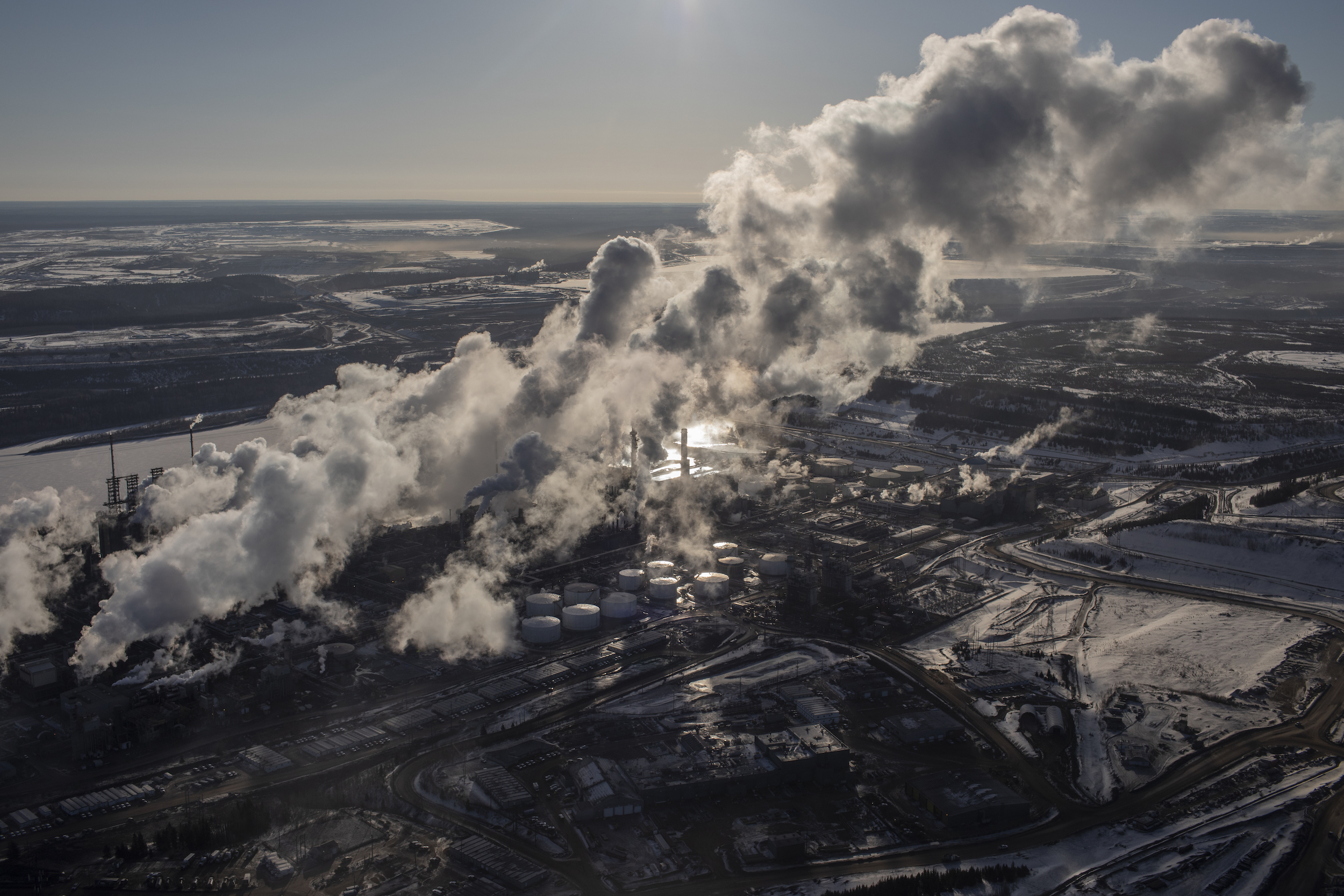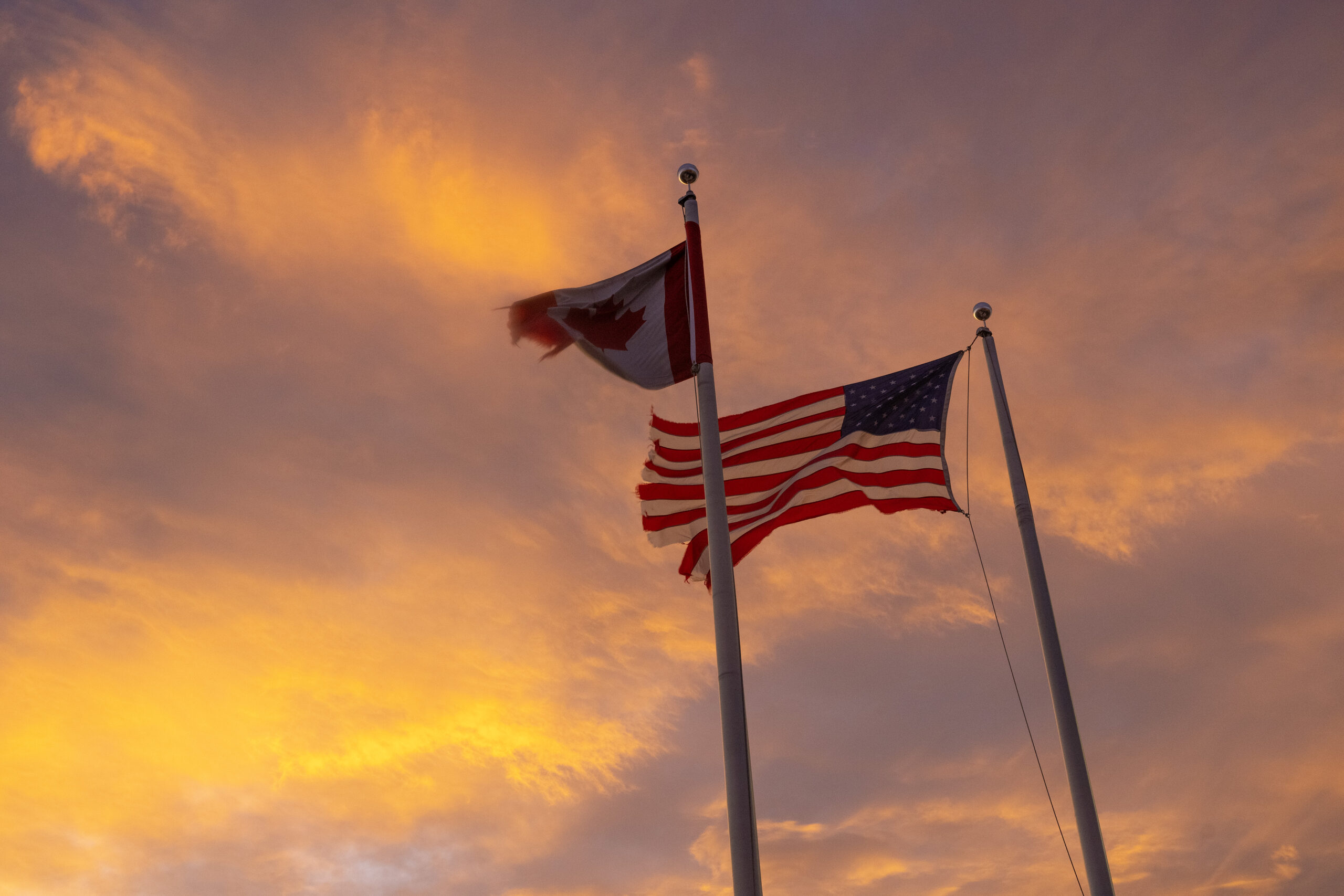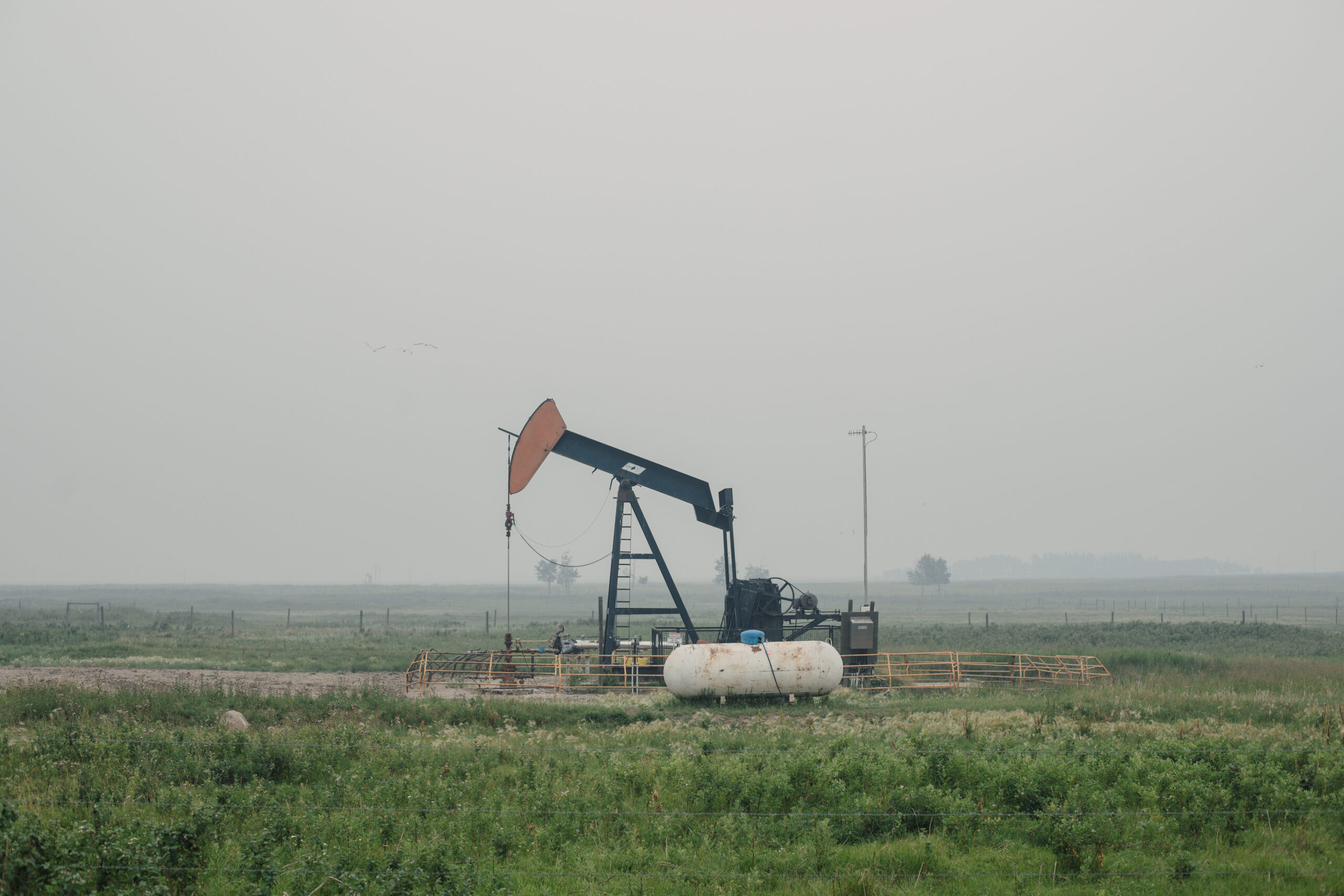
In a Nova Scotia research lab, the last hope for an ancient fish species
Racing against time, dwindling habitat and warming waters, scientists are trying to give this little-known...
Get the inside scoop on The Narwhal’s environment and climate reporting by signing up for our free newsletter.
There has been a deluge in Alberta lately, each week bringing an endless stream of announcements or re-announcements. Some are small, some are let’s-see-if-we-can-break-Canada significant. Think: ignoring federal laws and establishing its own border patrol.
Let’s just say the past week has been one for the books.
It’s hard to keep track of everything and the context behind it, even for those who are, ahem, paid to keep track of what’s tied to energy and the environment (let’s face it, that’s everything).
Here is a roundup of Danielle Smith’s significant moves related to energy and the environment recently — and a little analysis of what is, or could be, behind them.
Hands down the most significant announcement this week is Danielle Smith’s plan to (sort of) nationalize aspects of the province’s oil and gas industry in response to the federal government’s proposed emissions cap.
Smith wants to invoke her creatively titled Sovereignty Within a United Canada Act to sell oil and gas directly for companies through a royalty-in-kind program. Basically, “give us the oil and gas instead of paying us royalties and we’ll sell it for you” — our words, not hers.
Smith has also mused this week on “de-risking” the long-dead Keystone XL pipeline to the U.S. “De-risking” means providing some sort of insurance for anyone willing to build the pipe — it’s something her predecessor Jason Kenney did, costing Albertans more than $1 billion. Details to come?
The province also vows to work with other jurisdictions to build more pipelines to the U.S., but the details are unclear.
The moves to directly market and sell oil, as well as investing or intervening to build pipelines (not to mention the little nuggets you’ll read below about controlling data and access to oil and gas sites) are a not-insignificant departure from the free hand of the market.
But wait, there’s more.
The province argues the emissions cap on the oil and gas industry is actually a cap on production and will hurt the economy. The federal government, well, disagrees.
Smith’s government said it would retaliate against the federal government if it brings in an emissions cap by launching a constitutional challenge. Smith also suggested Alberta would somehow block access to private oil and gas facilities for any federal employee or contractor — basically anyone who’s not working for the company, or who hasn’t been “specifically licensed to enter by the Government of Alberta.”

It is extremely unclear how this would work.
The Alberta government also wants to declare “all information that is directly or indirectly related to greenhouse gas,” and collected by oil and gas companies operating in Alberta, to be the property of the province. Essentially, the province wants to take ownership of private data from companies that operate across the country (and beyond) and which are legally required to provide that data to the federal government.
U.S. president-elect Donald Trump said he’d find some time between mass incarcerations and deportations on Day One of his administration to impose 25 per cent tariffs on Canada and Mexico. Maybe he’s just bluffing, but the implications for Alberta could be big.
Oil and gas, he said, would not be spared.
That’s bad news for the province, which sells almost all of its fossil fuels to the U.S. Crude oil exports to the U.S. alone were valued at approximately $108 billion in 2023 (that’s just Alberta and just crude).
In response, Smith said Canada needs to acquiesce to Trump’s demands for more border security in an effort to appease him and avoid the tariffs — or she’ll do it on her own.

“I communicated this very clearly to the prime minister, and further indicated that Alberta will be acting urgently and decisively to patrol our own shared border with Montana, with more details to be announced soon in that regard,” she said in a news release.
Smith has mused it could involve provincial sheriffs, but the details are scarce.
We do have an effective rat patrol and at least one of Smith’s own MLAs has experience, um, stopping things at the border, so there’s that.
The other carbon tax, the one imposed on industry and run by the province, is supposed to funnel money to green technology to help industry innovate and reduce emissions.
The government has now decided $50 million of that fund should be spent improving drilling technology instead.
The money, which will be used to create a test site for companies to experiment with new technologies, will also help at least one geothermal company. The province has a lot of geothermal resources and that also involves drilling deep into the ground.
But the geothermal angle could be seen as justification for using green tech funds for fossil fuels.
“The Alberta drilling accelerator means big things for oil and gas exploration in our province, but also for industries that will be vital for achieving our goal of carbon neutrality by 2050,” Smith said in the announcement. The province is still very short on details or goals for its plan to achieve net-zero by 2050.

Oil companies Tourmaline Oil and Halliburton have expressed interest in being anchor tenants at the new test site, along with geothermal outfit Eavor, according to the province.
Finally, the province said it’s taking the federal government to court again over the Impact Assessment Act — which allows Canada to evaluate and deny projects with significant environmental footprints.
The previous challenge brought by Alberta resulted in some part of the act being struck down. Ottawa amended it, but Alberta isn’t happy with the process or the outcome.
The federal government apparently ignored a four-week deadline unilaterally established by the province to change the act, so it’s back to court.
Get the inside scoop on The Narwhal’s environment and climate reporting by signing up for our free newsletter. On March 17, federal Conservative Leader Pierre Poilievre...
Continue reading
Racing against time, dwindling habitat and warming waters, scientists are trying to give this little-known...

From investigative reporting to stunning photography, we’ve been recognized with four 2024 CAJ Awards nods...

The Narwhal is expanding its reach on video platforms like YouTube and TikTok. First up?...
